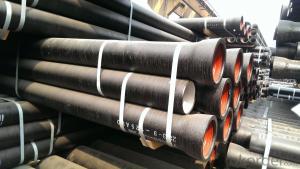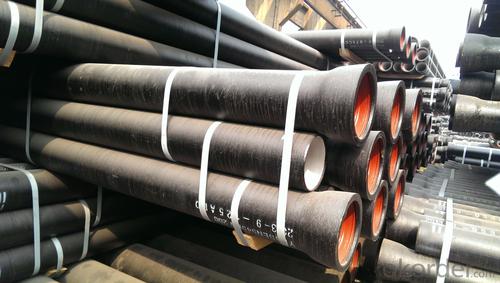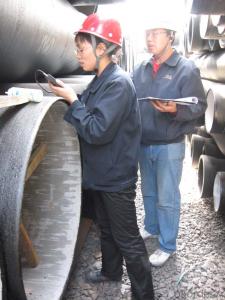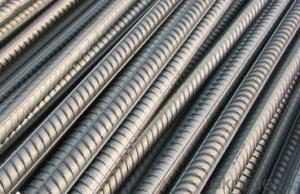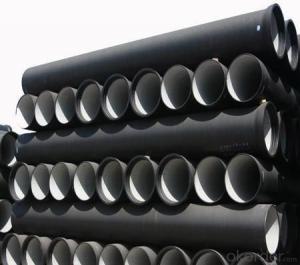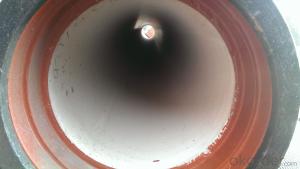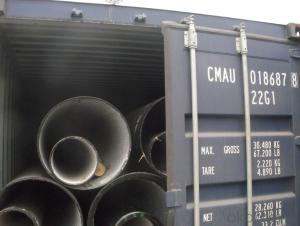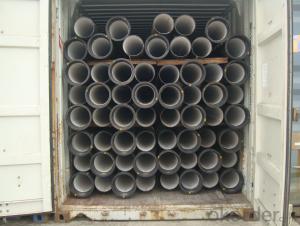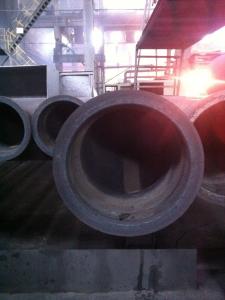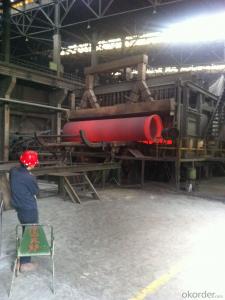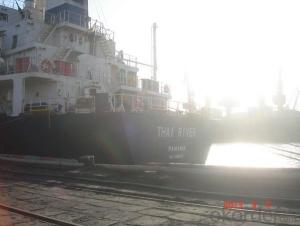DUCTILE IRON PIPES AND PIPE FITTINGS C25 CLASS DN900
- Loading Port:
- Tianjin
- Payment Terms:
- TT OR LC
- Min Order Qty:
- 25 m.t
- Supply Capability:
- 30000 m.t/month
OKorder Service Pledge
OKorder Financial Service
You Might Also Like
Material : Ductile Cast Iron
Size Range : DN 80mm to DN 2000mm
Unit Effective Length : 6m or 5.7m
Manufacture Standard: ISO 2531:1998/ EN 545:2006/EN 598:2007
Annual capacity : 200,000 tons
Coating Exterior: Zinc 130g/m2 according to ISO 8179-1 and bitumen coating 70 microns.
Cement Interior: Portland Cement/ High Alumina Cement/ Sulphate Resisting Cement Lining according to ISO 4179
Special requirements on external coating and internal lining can be applied
We also provide accessories such as SBR/EPDM rubber gaskets, lubricant paste, pipe caps, PE sleeves, etc.
Additional Parts:
Each pipe is strictly inspected according to related standard to ensure permanently high performance.
Easy Installation at site and service free for life
Long Service Lifespan
Quotation will arrive you within 24hours once we get your inquiry.
We guarantee offering you a competitive price.
A copy of original inspection reports of pipes will be offered after shipment.
Photos of loading process will be sent to the customer after shipment effect.
We will follow-up the delivery progress after shipment effect and update to the customer on weekly basis.
- Q: How does ductile iron pipe perform in areas with high soil settlement?
- Ductile iron pipe has gained a reputation for its exceptional performance in regions where soil settlement is significant. Thanks to its inherent strength and durability, it remains structurally intact under the pressures exerted by settling soil. The ductile iron pipe's flexible nature enables it to accommodate ground movements caused by soil settlement, thereby reducing the risk of pipe failure or damage. Its adaptability to these movements helps prevent cracks, leaks, and breaks that may occur in more rigid pipe materials. Furthermore, the strong resistance of ductile iron pipe to corrosion provides an additional advantage in areas with high soil settlement. It can withstand the corrosive effects of the soil and other environmental factors, ensuring the pipe system's longevity and reliability. In regions with substantial soil settlement, ductile iron pipe is often the preferred choice due to its ability to handle ground movements without compromising performance. Its strength, flexibility, and corrosion resistance make it an ideal solution for maintaining a robust and efficient water distribution system, even in challenging soil conditions.
- Q: Are ductile iron pipes suitable for use in irrigation sprinkler systems?
- Yes, ductile iron pipes are suitable for use in irrigation sprinkler systems. Ductile iron pipes are known for their strength, durability, and corrosion resistance, making them an ideal choice for transporting water in irrigation systems. They can withstand high pressure and provide long-term reliability, ensuring efficient water distribution for irrigation purposes.
- Q: Are ductile iron pipes resistant to microbiologically induced corrosion?
- Yes, ductile iron pipes are highly resistant to microbiologically induced corrosion. The unique composition and structure of ductile iron make it less susceptible to the growth of microorganisms and the subsequent corrosion caused by them. Additionally, the protective oxide layer that forms naturally on the surface of ductile iron pipes provides an extra layer of defense against microbiological corrosion.
- Q: What is the K9 standard pressure for ductile iron pipes?
- Ductile weakness: ductile cast iron pipes connected by human factors such as the operation level of responsibility, influence, construction not convenient. The advantages of PE PE PE pipe has good corrosion resistance and its anti inorganic performance than that of the metal pipe is much stronger in the buried without corrosion, construction convenient. Small diameter PE pipe in the price performance ratio is better than that of steel and ductile iron.PE tube have disadvantages: benzene, gasoline, carbon tetrachloride and other organic solvents have certain effect on pe. If the organic solvent is infiltrated into the polyethylene, the swelling will occur, and its physical properties will be decreased. Its pressure resistance and temperature resistance are poor.
- Q: DN300 what's the price of the ductile iron pipe / the weight and the price of one meter?
- Graphite is exist in spherical form, usually graphite size is 6-7, casting spheroidization grade control requirements for 1-3 quality (spheroidization rate greater than 80%), so the mechanical properties of the material itself has been improved, has the essence of iron, steel performance.
- Q: What's the function of the cement mortar lining of ductile iron pipes?
- In brief, the cement mortar lining system has the following advantages:1. provide active protection better than barrier coating2. meet both national and international standards for contact with potable water3. can be used in the strict requirements of the occasion4. strong and shock resistant5. suitable for a wide range of applications6. easy to repair7. over 100 years of service life
- Q: Are ductile iron pipes suitable for use in agricultural applications?
- Yes, ductile iron pipes are suitable for use in agricultural applications. Ductile iron pipes are known for their high strength and durability, making them ideal for withstanding the heavy loads and pressures often found in agricultural operations. Additionally, they have excellent corrosion resistance, which is important in agricultural environments where pipes may be exposed to chemicals or fertilizers. Ductile iron pipes also have a long lifespan, reducing the need for frequent replacements and minimizing maintenance costs. Overall, their robust nature and ability to handle various agricultural demands make them a reliable choice for use in agricultural applications.
- Q: Can centrifugal cast iron pipe be galvanized or coated with asphalt which is good for corrosion prevention?
- 1, outdoor grounding of anti-corrosion, we must consider the contact resistance, so it is recommended not to use asphalt, and do not use anti-corrosion paint, preferably galvanized anti-corrosion.2, asphalt anti-corrosion paint has good water resistance, moisture resistance, corrosion resistance. Acid and alkali resistance, salt fog resistance, atmospheric exposure and so on. The utility model is suitable for coating internal and external surfaces of various containers and machinery, underground steel structures and underground pipelines for moisture proof, water resistance and corrosion prevention. The utility model is also suitable for repairing water cracks in houses.3, anticorrosive paint is used in the surface of the object, can be used to protect the interior of the object without corrosion of a kind of paint. It is one of the more commonly used than paint anti-corrosion paint in industrial construction, widely used in aviation, shipbuilding, chemical, oil pipelines, steel structures, bridges, oil rigs and other fields, by the vast number of manufacturers favor building.
- Q: How to analyze and judge the quality of ductile iron pipe
- The most intuitive judgment ductile pipe quality is the ratio of the thickness of cement and iron, cement thick wall thicker tube quality is better, there are also some manufacturers of the pipe, thick wall pipe head cast iron part looks to be thick, but there is also a thin iron pipe, so the judge quality to open look inside, personally think that the highest price of the manufacturer is Jinan steel, Jinan Iron and steel because the pipe quality can reach the national standard K9, the price is also lower than the emerging, Saint Gobain and other major brands, as the water supply pipe K8 is no problem, but the price and quality aspects for the construction of which more importance.
- Q: Can ductile iron pipe be used for stormwater systems?
- Yes, ductile iron pipe can be used for stormwater systems. Ductile iron pipe is a strong and durable material that is commonly used for various applications, including stormwater systems. It has excellent corrosion resistance, making it suitable for handling stormwater, which often contains debris and chemicals. Ductile iron pipe also has high tensile strength and can withstand heavy loads and pressures, making it a reliable choice for stormwater systems that may experience significant flow rates and occasional surges. Additionally, ductile iron pipe is available in various sizes and configurations, allowing for flexibility and adaptability in designing stormwater systems.
Send your message to us
DUCTILE IRON PIPES AND PIPE FITTINGS C25 CLASS DN900
- Loading Port:
- Tianjin
- Payment Terms:
- TT OR LC
- Min Order Qty:
- 25 m.t
- Supply Capability:
- 30000 m.t/month
OKorder Service Pledge
OKorder Financial Service
Similar products
Hot products
Hot Searches
Related keywords
